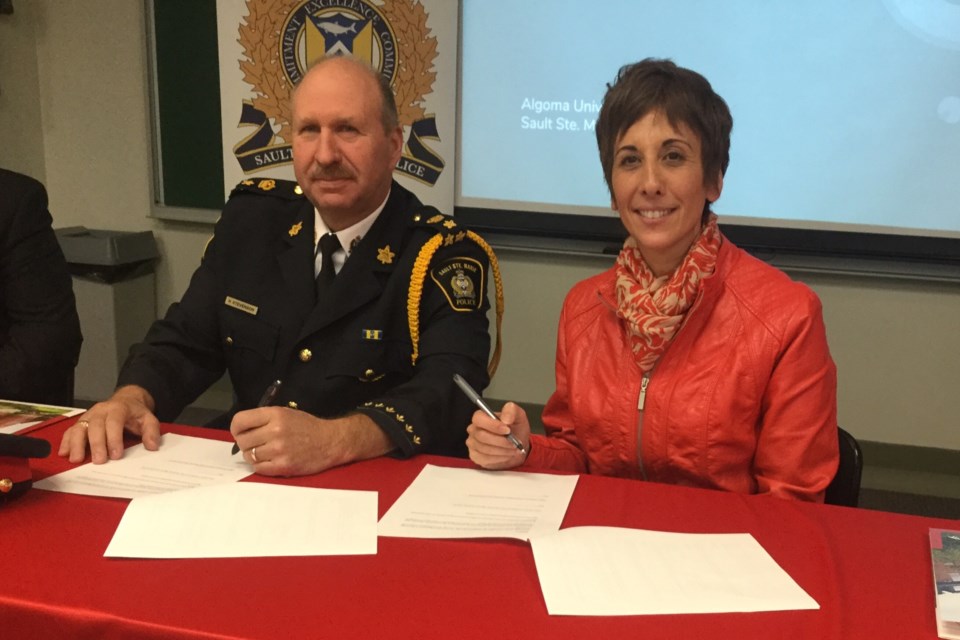Compulsory indigenous training for members of Sault Ste. Marie Police Service will begin Monday, Nov. 5 under a memorandum of understanding signed Wednesday night at Algoma University.
Spearheaded by deputy chief Sean Sparling, the new program is known as SHIFT (Shifting Indigenous Frontline Tactics) and will eventually be provided to all City Police personnel.
It's designed to bridge the gap between police and indigenous communities by encouraging cultural understanding and sensitivity.
"This is for everyone from civilian to chief," Police Chief Hugh Stevenson tells SooToday. "It's not about who you are in the organization or your status. It's about the entire organization being given an opportunity to understand gaps, challenges in the indigenous community, and work together to make sure that everyone feels safe in the Sault police area."
Pilot sessions for 18 top police brass will take place Nov. 5 and 6 and on Nov. 26 and 27.
The curriculum will then be fine-tuned with input from the initial class of leaders, after which classes for rank-and-file police staff will start next May.
"For me, it's all about those young recruits...that early on in their career they get exposed to this material," the chief said.
"We're looking a cohort of anywhere from 15 to 20 at a time, depending on scheduling," said Joe Tom Sayers, Algoma University's director of Anishinaabe initiatives.
The program has been developed with input from a committee of local elders and community members.
"We're going involve culture in the delivery of the training. We're going to use our Biidaabin arbour... as well as a firekeeper. That's how we're going to start each day," Sayers told us. "And finally, we want to have a lot of indigenous foods."
"The committee felt that there needs to be a balance between cultural understanding and exposure to cultural practices, with the day-to-day issues that not only police have to face, but indigenous peoples in urban centres," Sayers told us.
Training will include:
- pre-contact cultures
- impacts of treaties and the Indian Act
- a tour of the Shingwauk site
- intergenerational trauma
- optional participation in a cultural immersion activity such as a feast or sweat
- unconscious bias
- First Nation education and youth
- Indian Residential Schools Settlement Agreement
- Anishinaabe language as a form of resistance
- reconciliation in Sault Ste. Marie
Who's funding this?
Sault Ste. Marie Police Service is providing $30,000 for initial development of the SHIFT program in 2018-2019.
Instruction will be provided by Algoma University, both on- and off-campus, using four facilitators.
Both City Police and the university are hoping the innovative program will eventually be made available across Canada.
"Not just policing folks," said Chief Stevenson. "Canada Revenue Agency, Ministry of the Attorney General, Ministry of the Environment. Those are all agencies that have a regulatory impact on our lives, that deal with indigenous peoples and non-indigenous peoples every day."
"We both have agreed that we do not want to engage in this work if it's not going to change something in both organizations," Algoma University president Asima Vezina said at Wednesday's signing event.
